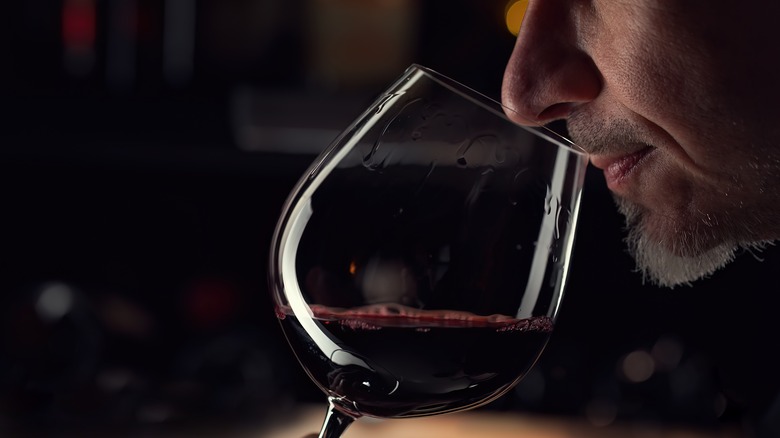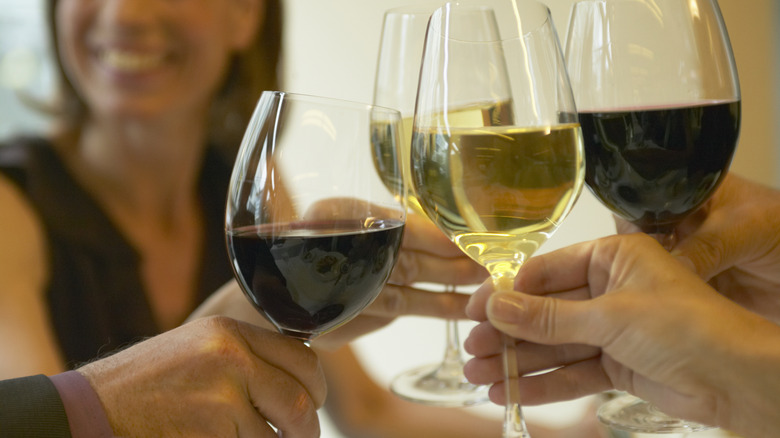The Biggest Mistake You're Making When Tasting Wine, According To An Expert
At a lively dinner party, you find yourself standing in front of an elegant selection of wines. You pick up a glass of red with your pinky up, swirl the wine around, and take a sip. You've heard terms like bouquet, body, oaky, finish, and so on, but your perceptions of these things are vague at best, and you lack the confidence to ascribe the terms. All you can think is, "This just tastes like wine..."
According to Mandy Naglich, Food Journalist, Advanced Cicerone, and Author of "How to Taste: A Guide to Discovering and Savoring Life," in an exclusive conversation with Tasting Table, the mistake is overthinking and "trying too hard" to describe the wine. Naglich observes that people often strive for poetic or elaborate descriptors, mentioning "gravel by a summer spring" or "saddles at a dude ranch." But, like eyes adjusting to a dark room, the perception of these details will take some time to develop. She elaborates, "These examples ... are built upon the simple tasting notes of "earth" and "leather." Instead of stressing out about the inability to identify complex flavors or aromas, Naglich suggests a simpler approach. "When someone is really struggling to find anything other than "grapes in a wine, it's helpful to calm down a little and think about comparisons."
The art of effortless wine tasting
Instead, start with a more fundamental question. Naglich suggests, "Does this wine smell more like fruit or more like vanilla? If the answer is fruit, is it more like pomme fruit (apples/pears) or more like stonefruit (peaches/apricots)? Soon you'll have narrowed yourself down to some relevant tasting notes, all without too much stress or effort."
Naglich emphasizes enjoying the experience when tasting wine, free from the worry of external judgments or the "correct" terminology. "Wine tasting (all tasting for that matter) should be stress-free, sniff, sip, and swirl and see what words or images arise in your mind naturally; that's what you taste! Try not to let notes written on the bottle or told to you by an expert sway you from your initial reactions," she advises. Your first impression of the wine, after all, is often the most authentic, so trust your senses and enjoy the experience. So, the next time you taste wine, take a deep breath and savor its flavors. It's okay if it still just tastes like grapes to you — as long as you're enjoying it; not everyone has to be a sommelier.

